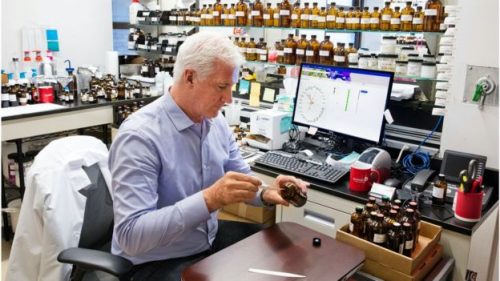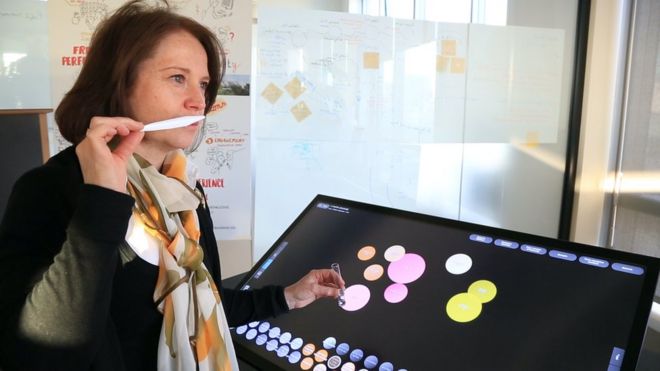

1. scent (v.)
a pleasant natural smell
2. infiltrate (v.)
to move slowly into a substance, place, system, or organization
3. vast (adj.)
extremely big
4. spreadsheet (n.)
a computer program, used especially in business, that allows you to do financial calculations and plans
5. competitive (adj.)
Competitive prices, services, etc. are as good as or better than other prices, services, etc.
6. intimacy (n.)
a situation in which you have a close friendship or sexual relationship with someone
7. aroma (n.)
a strong, pleasant smell, usually from food or drink
The perfume makers that can't smell a thing

Do you need a human to create a beautiful scent? That’s the question being asked as artificial intelligence (AI) starts to infiltrate the perfume industry.
Companies are increasingly turning to technology in order to create more bestselling, unique fragrances that can be produced in just minutes.
Last year, Swiss-based fragrance developer Givaudan Fragrances launched Carto, an artificial Intelligence-powered tool to help perfumers.
Through machine learning (a way computers improve outcomes automatically by learning from past results) Carto can suggest combinations of ingredients.
Using a touch screen, the perfumer can pull together different scents using data from the brand’s vast library of fragrance formulas – a much more efficient process than using spreadsheets. A small robot immediately processes the fragrances into perfumes, making it easier for perfumers to test their new scents.
“Up until about 40 years ago, perfumers worked with all the ingredients in front of them and they’d grab the ingredients and write down the amounts and names of ingredients on a piece of paper.”
One benefit of Carto is that samples are created instantly, giving them a competitive advantage. “We can adjust the perfume almost live with the customer,” says Ms Becker.
“It is a big plus not just because we gain time but there’s more intimacy when we connect in front of the tool.”
What has been their customer’s reaction? “We have some early adopters but some say they will never use it,” she says. “I think that’s totally normal. But it’s created a lot of buzz from customers interested to see how they can see creations with it.”
Given that the machine has a database of close to two million aroma formulas – the potential for a wider range of scents and combinations is huge. In 2019 Brazilian cosmetics company O Boticário worked with Symrise to launch the first fragrance using artificial intelligence.
Resource:https://www.bbc.com/news/business-53189292

1. What kind of perfumes do you like?
2. Do you usually wear perfume? Why? or Why not?
3. What is your favourite perfume?
4. How do you choose the right perfume for you?
“A woman who doesn't wear perfume has no future.”
Coco Chanel

 Pre-advanced
Pre-advanced
